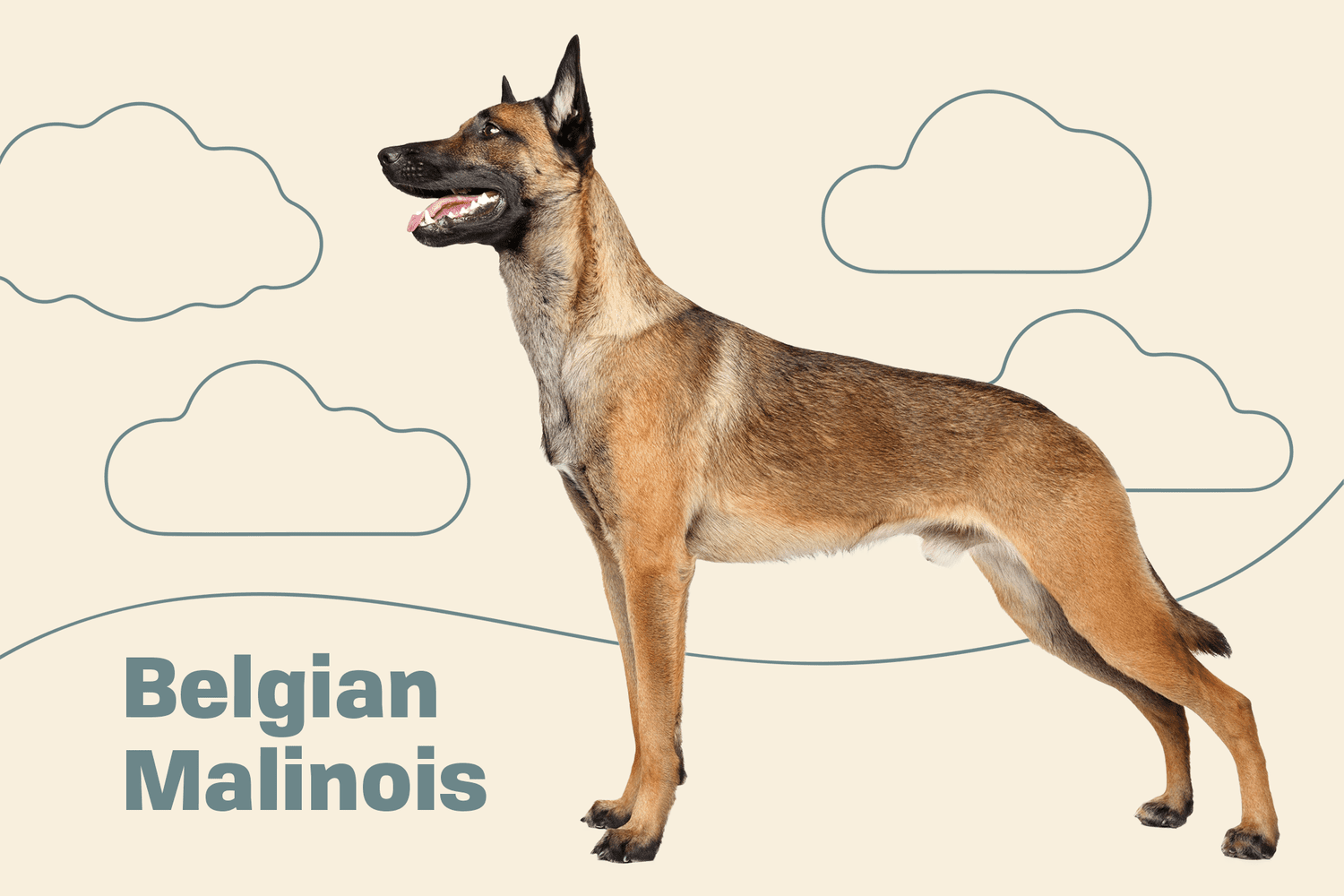Belgian Malinois Dog Breeds: Characteristics, Care & Caution
A brief overview of the Belgian Malinois Dog Breeds
The intelligent, self-assured, and adaptable Belgian Malinois is a world-class worker who bonds with his human partner for life. Denying a bad action and the pleasure of your company deprives him of his basic reason for being. Belgian Malinois are tall, square-built herders that range in height from 22 to 26 inches. They have an honest, no-frills appearance, as befits dogs meant to work hard for their food. They are strong and well-muscled, but not bulky. The breed is distinguished by its proud carriage of the head.
The coat colors range from dark mahogany to deep fawn. The black ears and mask draw attention to the bright, inquisitive eyes, which are the color of dark Belgian chocolate. If you've ever seen a Mal perform an obedience routine, you already know what a bright and energetic breed this is. Problems arise, however, when this people-oriented dog is underemployed and neglected. Mal's happiness requires a lot of exercise, preferably alongside their adored owner.
Introduction
A Quick Overview of the Belgian Malinois:
The Belgian Malinois is a breed of dog from Belgium that can do a variety of tasks and is extremely intelligent. Belgian Malinois are frequently used as working dogs in law enforcement, the military, search and rescue, and even as service dogs. It is well-known for its hard work, loyalty, and athleticism. Their striking appearance and amazing abilities have also made them popular pets for active families.
Reasons for Their Popularity: Belgian Malinois have grown in popularity for a variety of reasons, including:
Versatility: These dogs excel at a wide range of tasks, from law enforcement to therapy.
Intelligent: Belgian Malinois are known for their ability to learn new things quickly and solve problems.
Loyalty and bonding: They become attached to their owners and work tirelessly to protect them.
They are good for families and people who like to stay busy because they are active and full of energy.
History
Belgian Malinois is one of four types of Belgian Shepherd dogs. In the late 1800s, it was invented in Belgium. They were bred to herd and guard livestock, but because they were smart and easy to train, they quickly found other jobs.
Differences from Other Belgian Malinois Breeds: Unlike other breeds, Belgian Malinois do not have distinct "breeds." However, there are four types of Belgian Shepherd dogs: Malinois, Tervuren, Groenendael, and Laekenois. The Malinois is known for having a short coat, whereas the other breeds have different coat types.
Characteristics
Belgian Malinois have a well-balanced and athletic appearance. Their double coat is short and thick, with fawn colors and a black mask.
They are intelligent, loyal, and on the lookout. Belgian Malinois are known for their hard work and desire to please their owners.
Temperament: They are usually self-assured, watch out for, and care for their families. They can be shy around strangers, making them excellent guard dogs.
Belgian Malinois are typically between 22 and 26 inches (56 to 66 cm) tall at the shoulder.
Weight: The majority of them weigh between 40 and 80 pounds (18 and 36 kilograms).
A Belgian Malinois has an average life span of 10 to 14 years, depending on how well they are cared for and how healthy they are.
Socialization and education
The Importance of Early Training and Socialization: Because Belgian Malinois are intelligent and protective, they require early training and socialization. They will grow up to be well-behaved, in-charge adults if they receive the proper training.
Positive reinforcement methods, such as rewarding good behavior with treats, praise, and rewards, are effective for training Belgian Malinois.
Common behavioral issues and how to deal with them:
Belgian Malinois can exhibit aggressive behavior if they are not properly trained and socialized. To deal with and prevent these issues, you must train people early, be consistent, and provide clear instructions.
Maintenance and upkeep
Common Diseases and Symptoms: They may develop hip and elbow dysplasia, as well as eye problems and other health issues that run in their families.
Dietary requirements: They must consume a well-balanced diet that provides them with the energy they require. Speaking with a veterinarian can assist you in determining what to feed your pet.
Belgian Malinois are very active dogs who require regular, intense exercise. Getting them to participate in activities such as agility, obedience, or even dog sports can help them burn off some of the energy they require.
Grooming and cleanliness: Their short coat is simple to keep clean. Shedding can be reduced by brushing them frequently and bathing them on a regular basis.
Breeding and reproduction: Ethical breeding practices consider the health and behavior of the breed. The health and well-being of both the parent dogs and the puppies is prioritized by reputable breeders.
Where to buy and adopt: It is best to buy from responsible breeders who adhere to ethical standards. Adopting a dog from a shelter or rescue group is a generous act because it provides a loving home for a dog in need.
The Belgian Malinois in the News
Famous Belgian Malinois include the characters "Max" from the film "Max" and "Cairo" from the film "Zero Dark Thirty."
Belgian Malinois in Film and TV: Due to their impressive skills and appearance, Belgian Malinois are frequently featured in action-packed movies and TV shows.
Media Representation: They are frequently portrayed in the media as brave and loyal characters who protect and care for others.
Conclusion
Finally, the Belgian Malinois is an excellent example of how working dog breeds have distinct abilities and characteristics. They are ideal for a variety of jobs, from law enforcement to loving family pets, due to their loyalty, intelligence, and strength. It is critical to train, care for, and understand this amazing breed's unique needs in order to have a fulfilling and mutually rewarding relationship with them.
source https://dogcareguidetip.blogspot.com/2023/09/belgian-malinois-dog-breeds.html




0 Comments: